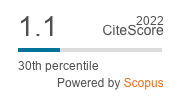Problems of accessibility of public space and social isolation of older people with disabilities in Hermosillo, Mexico
Keywords:
older adults, disability, social isolation, accessibility, public spaceAbstract
The study examines the association between problems of accessibility of public space and the social isolation of older people with disabilities. The methodology is based on a multivariate statistical analysis (binary logistic regression, main components, cluster) of the data from a survey of 381 older adults with disabilities and an environmental audit of street segments in the downtown of Hermosillo, Mexico. A public space accessibility scale is used to evaluate the indicators of functionality, comfort, safety and destination. The results indicated that the risk of social isolation is associated with low functional capacity, cardiovascular diseases, psychological problems, less mobility outside the home, few social networks, and accessibility problems of public space. In neighborhoods with a high risk of social isolation, there were greater problems of perceived accessibility (poor condition of streets and sidewalks, lighting, insecurity) and objective accessibility (degree of accessibility, functionality and destination) in public space, and lower functional capacity. Modifications to the environmental characteristics that determine the accessibility of public space could redefine behavior and prevent social isolation of older adults with disabilities, promoting age-friendly cities and communities to the active and healthy ageing.
Downloads
Downloads
Published
How to Cite
Issue
Section
License
Copyright (c) 2023 Revista de Geografía Norte Grande

This work is licensed under a Creative Commons Attribution 4.0 International License.






